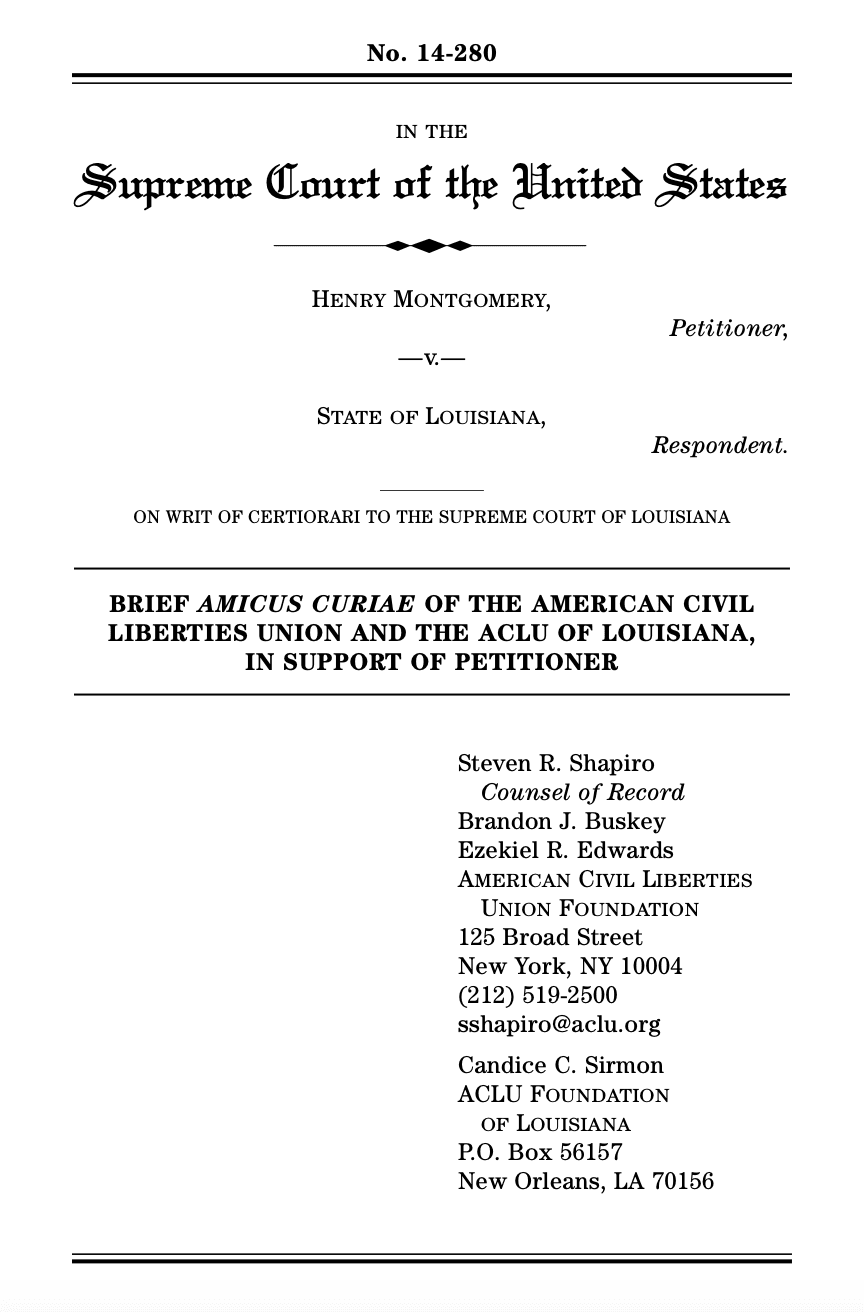
Summary of Argument
Amici agree with Petitioner that Miller v. Alabama, 132 S. Ct. 2455 (2012), is a substantive rule of criminal law because it categorically prohibits a mandatory sentence of life without parole for juvenile offenders. Miller therefore is not subject to Teague’s bar against applying new procedural rules on collateral review. Amici write separately to assert that, even if the Court classifies Miller as procedural, the decision is still retroactive as a watershed rule of criminal procedure. Under Teague v. Lane, 489 U.S 288 (1989), watershed rules of criminal procedure are exempted from the Court’s general ban on enforcing new criminal procedure rules in habeas.
In requiring an individualized sentencing hearing that provides consideration of a defendant’s youth and its attendant circumstances before sentencing juvenile offenders to die in prison, the Miller Court made clear its belief that such sentences would and should be rare. Miller v. Alabama, 132 S. Ct. 2455, 2469 (2012). The inescapable corollary of this assumption is that mandatorily sentencing juvenile offenders to life without parole is fundamentally unfair and impermissibly unreliable. Miller’s new rule of individualized sentencing is therefore cognizable on collateral review. See Teague v. Lane, 489 U.S. 288, 311 (1989).